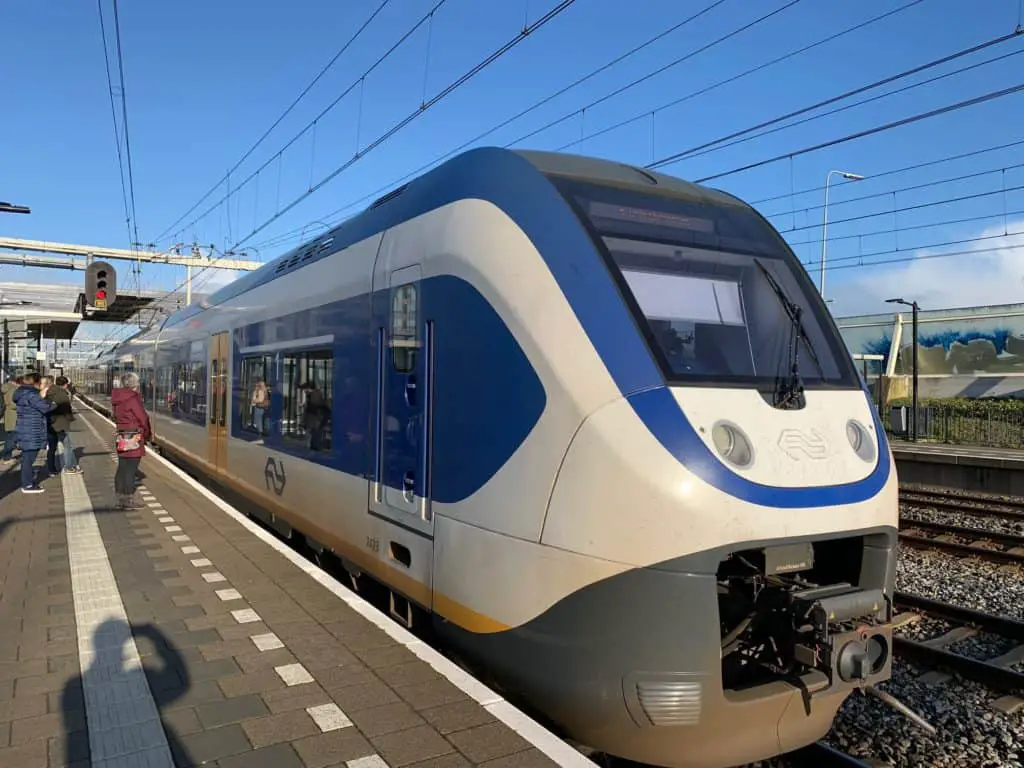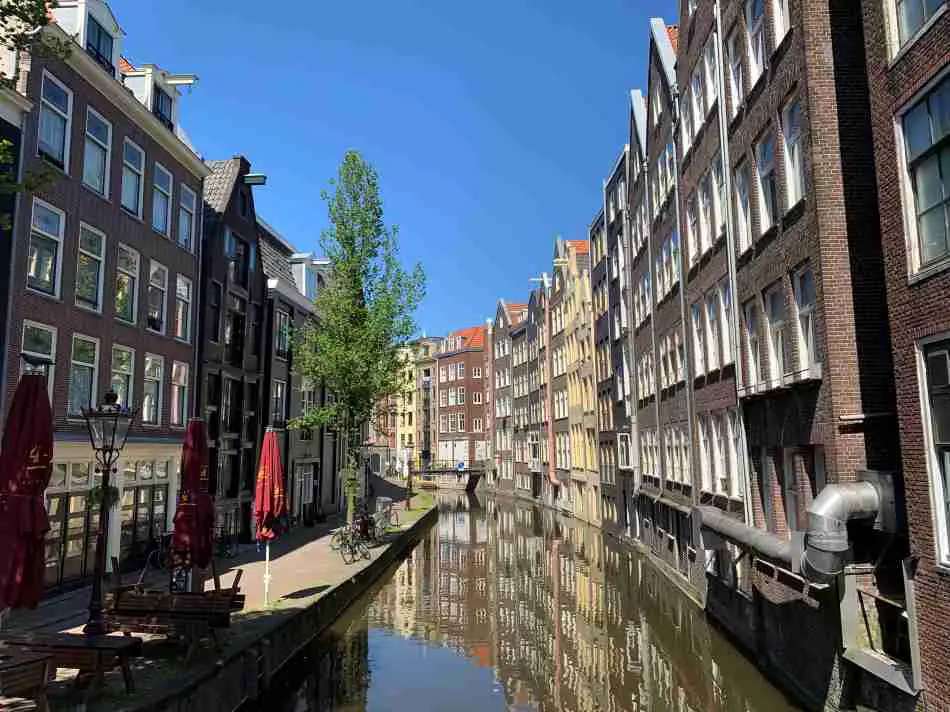Are you thinking about moving to the Netherlands and weighing the pros and cons? It’s crucial to have an objective view of the pros and cons of living in The Netherlands.
As a lifelong Dutch resident, I can give an objective overview of The Netherlands
As a lifelong Dutch resident, I want to give you an objective breakdown of the advantages and disadvantages of living in The Netherlands. Let’s embark on this exploration together to help you make a well-informed decision.
At first sight, The Netherlands looks like a fantastic place to live. The Netherlands ranked 5th in the World Happiness Report 2022 and 8th in the 2022 worldwide quality-of-live index for expats, higher than any other Western European country. So it seems that The Netherlands is a country without disadvantages.
I can assure you that living in the Netherlands also has disadvantages
However, I am Dutch; I have lived almost my entire life in The Netherlands except for a brief period in the United States, and I can assure you that living in the Netherlands also has disadvantages.
I want to ensure that you have a balanced view of living in The Netherlands.
Table of Contents
Pros and Cons of living in the Netherlands
5 Cons living in the Netherlands
6 Pros Of Living In The Netherlands
1. Great Work-Life Balance
The most appreciated part of living in The Netherlands is the work-life balance in The Netherlands. The average working week in The Netherlands comprises 36-40 hours, and annually, you will have 25 days of paid vacation plus an additional ± 10 paid national holidays. Even more staggering, almost 50% of the Dutch working population works part-time.
It is said that the Dutch work to live and don’t live to work. However, many expats who have experienced the Dutch work-life balance for a while have trouble readapting to the American and Asian work-life balances upon returning to their home countries. You can get used to having a great life without working 60-80 hours weekly.
2. Excellent Education System
The Netherlands has one of the highest educated populations in Europe, if not the world. A recent OECD report about education levels in The Netherlands confirmed that almost half of the 25-34 years old in The Netherlands attained a college or university degree, well above the OECD average of 44%.
The Netherlands is relatively popular among international students, and 14% of all students at colleges and universities are of foreign origin. An important reason for this high percentage of international students is that many programs are taught in English only.
That is fantastic for international students but, at the same time, also increases the English proficiency of Dutch students significantly.
Another important reason for the high percentage of foreign university students is that the cost of university education is significantly lower in The Netherlands than in many other countries.
Another significant advantage in the Netherlands for expats is the many international schools in The Netherlands. Therefore, if you move to The Netherlands while your children are already used to a school system at home, their education can continue without having to learn Dutch and get used to a different educational system.

3. Fantastic Public transportation
Public transportation in the Netherlands is excellent and even exceptionally good in some Dutch cities. For example, Rotterdam has the best public transportation of all Dutch cities with its extensive metro line system.
However, virtually all of the Dutch towns have excellent public transportation. Only smaller cities have less extensive public transportation but transportation by bike in these smaller cities is much more convenient.
Public transportation between cities is also fantastic and allows you, for example, to live in The Hague or Utrecht and commute to Amsterdam in 30 minutes for work.
4. Virtually Everybody Speaks English
English is the second language of many Dutch, and they are happy (and proud) if they can show off their English language skills when approached in English. Even though their English is less than the Dutch like to believe, it suffices to communicate with foreigners about everyday issues.
If you intend to live and work (or study) in The Netherlands for 1-2 years, I don’t believe it makes sense to learn Dutch because Dutch is a complex language if English is your native language.
On the other hand, if you want to integrate into Dutch society, you need to learn Dutch because the Dutch will switch back to Dutch immediately in social talk and social settings (see below in cons of living in The Netherlands).
5. Universal Health Care System
The Netherlands has a universal health care system which is considered very good. The Dutch healthcare system ranked 2nd overall in a study in 2021 comparing the quality of healthcare systems in 11 high-income countries (Mirror, Mirror 2021: reflecting poorly. Healthcare in the US compared to other high-income countries)
| US | Canada | Holland | France | |
|---|---|---|---|---|
| Access | 11 | 9 | 1 | 7 |
| Care Process | 2 | 4 | 3 | 10 |
| Admin | 11 | 7 | 8 | 6 |
| Equity | 11 | 10 | 5 | 7 |
| Outcome | 11 | 10 | 4 | 6 |
| Overall | 11 | 10 | 2 | 8 |
The Netherlands ranked number 1 in access to healthcare, a measure of the healthcare system’s affordability and timeliness. An important reason for this top ranking is obligatory healthcare insurance in The Netherlands. Healthcare insurance is mandatory in The Netherlands, but you will get a government allowance if your income is too low.
The good part of this obligatory national healthcare insurance is that the entire population can access healthcare, and the annual deductible is capped at € 385. Consequently, you will not be bankrupt if you need more healthcare than usual, no matter how ill you are.
6. Safe Country
I wrote another article on this website about how safe The Netherlands is to travel to or live in, and you can read that article for much more information (Is The Netherlands a safe country?).
To summarize that article: The Netherlands ranks among the safest countries in global safety indices. Violent crime and traffic accidents occur less often in The Netherlands than in other European countries. The Netherlands has a higher risk of flooding but is well protected by the Delta Works.
Fortunately, violent crime rates in The Netherlands are low. For example, homicide rates are 80-90% lower than in the United States, and bike thefts are the most common crime in The Netherlands. So I don’t know what you think, but I figure it is much better to look after my bike than my life carefully.
Tap water in The Netherlands is safe to drink, and The Netherlands was a very average country concerning problems during the Corona pandemic.
26% of The Netherlands is below sea level, and 59% may (theoretically) be flooded in case of severe storms. However, we are protected by solid dikes and a sophisticated water management system designed by world-class engineers and have not experienced significant flooding since 1953.

5 Cons Of Living In The Netherlands
7. High Population Density
One of the most-mentioned disadvantages is that the Netherlands is a crowded country, if not the most crowded country of the European countries in Western Europe.
In the table below, I have summarized the population density and ranking (in terms of population density) of the Netherlands and four surrounding Western European countries.
| Country (overall worldwide ranking) | Population density (per square kilometer) |
|---|---|
| The Netherlands (26) | 509 |
| Belgium (34) | 384 |
| United Kingdom (51) | 282 |
| Germany (61) | 240 |
| France (98) | 120 |
Keep in mind that the population density in the table above is the average population density of the entire country. However, the population density in the western part of the Netherlands (called the Randstad), with the most prominent Dutch cities, is much higher.
Most expats will move to one of these Dutch cities and, consequently, you will live in a region with one of the highest population densities in the world.
The disadvantages mentioned below (expensive housing, traffic jams) result from the fact that The Netherlands is very crowded.
8. Expensive Housing
The incredible population density discussed above is one of the reasons that housing in The Netherlands is costly. The population density is, of course, not the only reason because we have seen staggering increases in house prices in the last few years due to extremely low mortgage rates.
The average housing price in The Netherlands in Q3 2022 is € 425.000, a decline of almost 6% compared to the previous quarter due to the rapid increase of mortgage rates in 2022.
You need to realize that variations in housing prices are enormous, primarily depending on the house’s location. To illustrate that, I summarized a study by Calcasa of housing prices in 2021 in the five largest Dutch cities in the table below.
| Dutch City | Average house prices in the cheapest and most expensive neighborhoods |
|---|---|
| Amsterdam | € 260.000 – € 1.125.000 |
| The Hague | € 205.000 – € 865.000 |
| Rotterdam | € 195.000 – € 470.000 |
| Utrecht | € 335.000 – € 570.000 |
| Eindhoven | € 270.000 – € 445.000 |
Amsterdam and The Hague are the most expensive Dutch cities to live in. But unfortunately, Amsterdam and The Hague are the two Dutch cities that attract the most expats. Therefore, as an expat, you need to understand these Dutch cities in more detail to select a neighborhood that will be good for you and your budget.
That is why I have written articles about the best neighborhoods in Dutch cities that attract the most expats. I advise you to read the article about the city of your choice carefully to avoid ending up in a bad neighborhood. You need to understand these cities in more detail to make a good choice.
9. Traffic Jams
Another disadvantage caused by the high population density in The Netherlands is that we still have a lot of traffic jams despite the excellent public transportation. This is because housing in the major Dutch cities has become unaffordable for many people, and they must look for affordable housing outside the major cities.
However, most jobs are in major cities forcing them to commute to their jobs, often by car, because that is the most convenient. Since the coronavirus pandemic ended, the traffic jams have returned with a vengeance. Traffic jams are particularly horrendous around Amsterdam, with its many jobs in the financial and IT industry, and The Hague, with many governmental jobs.
I hope you will learn from this observation if you consider moving to The Netherlands. First, if you can’t afford to live in Amsterdam, which may very well be the case, make sure that you find a place close to a railway station with direct connections to Amsterdam-Zuid (the financial center).
Most governmental jobs are in the center of The Hague, close to the railway station. However, many expats live in Voorschoten and Wassenaar because they have excellent international schools and direct train connections to The Hague and Amsterdam.
You can save yourself a lot of time in traffic if you understand the Netherlands in more detail, and I suggest you read the articles above before choosing where to live in The Netherlands.
10. Need To Speak Dutch To Integrate Socially
It may be true that almost 90% of the Dutch speak enough English for an occasional conversation, but they will immediately switch back to Dutch if they talk with each other. Therefore, if you want to stay longer in The Netherlands than just a few years, you must learn Dutch to integrate socially.
Dutch is a Germanic language but still very different from German. As a result, the Dutch language has its peculiarities and is considered a complex language to learn by native English speakers.
Nevertheless, the best advice I can give you is to learn to speak Dutch to integrate into our Dutch society and social life.
11. Variable Weather
You will probably wonder what the weather will be like in the Netherlands all year round.
The Netherlands has a maritime climate with mild winters and summers with average annual temperatures between 5°C (41°F) and 15°C (59°F) and moderate but frequent precipitation throughout the year. The coastal regions are sunnier, windier, and cooler, with 50% more rain than the interior.
The maritime climate in The Netherlands may be moderate, but the weather in The Netherlands is also remarkably variable. The Dutch weather depends significantly on the time of the year. For example, there is 5x more sunshine during April – September than December-January.
June – August is the best time of the year in The Netherlands because the weather is good and the days are long. April – May is the second-best time of the year in The Netherlands because of the blooming tulips, and September is a good month because the weather is still reasonable and the tourists have left.
For more information, please read; the 11 most asked questions about Dutch weather.
Table Of Pros & Cons Of Living In The Netherlands
In the table below, I have summarized the 11 most-mentioned pros and cons of living in the Netherlands mentioned by locals.
| PROS OF LIVING IN THE NETHERLANDS | CONS OF LIVING IN THE NETHERLANDS |
|---|---|
| Great work-life balance | The highest population density in Europe |
| Excellent education system | Expensive housing |
| Fantastic public transportation | Still a lot of traffic jams |
| Virtually everybody speaks English | Need to speak Dutch to integrate socially |
| Universal healthcare system | Variable weather |
| Safe country |
